Fourteen authors share what they're planning to read this summer (Pt. 2)
Get ready to add some books to your already endless TBR list!
I'm happy to report that Part 1 of this series of posts, "Authors share their summer reading plans" (June 20), received a strongly positive response. People love to know what other book lovers are reading, especially if they happen to be authors. Part 1 shared the summer reading lists of 10 authors; Part 2 features the lists of 14 authors. (Part 3 is forthcoming shortly.)
As you review these 14 lists, you'll find that some authors share your reading preferences while others have wildly different taste. You'll discover many books you're unfamiliar with. Your TBR list will grow. Your bank account balance will shrink. But everyone will have a good time. May your summer be filled with good books!
Alice Elliot Dark (author of Fellowship Point, In the Gloaming: Stories, and Think of England)
My new habit is rereading what I have recently read, as I have found I get a lot more out of books that way (surprise, surprise). These are a few of my summer rereads.
Last House by Jessica Shattuck: This is the kind of rich, well-researched novel that is great to read slowly in the summer. The story traces an East Coast rising upper-middle class family from the ‘50s to the ‘70s, beginning in a moment when promising young men are able believe when they go into the CIA or take other jobs related to the development of an oil industry in Iran that they are contributing to progress and a good future for the world, and tracing the fallout of those Post War beliefs when the next generation is exposed to the ideas of the ‘60s and ‘70s. It’s a smart, well written novel well worth reading twice.
Real Estate by Deborah Levy: This is the final book in her autobiographical trio. The premise is that she has a fantasy house she adds to in her mind as she comes across desirable features as she actually lives in a crumbling apartment in London and travels around for work and visits. The structure is collage, the entries are invigorating. It’s a book that makes you feel “I want to live.” Deborah is always cooking and having parties, she is also always writing. A hero.
Aflame: Learning from Silence by Pico Iyer: I read this memoir when it came out earlier this year and I am reading it again making notes. Pico made over a hundred visits during the past three decades to a jerrybuilt Benedictine monastery high on a mountain above Big Sur. There he experienced both solitude and community and was able to both contemplate and set aside many disastrous events in his life. This is also a collage of sorts, with no firm attachment to a timeline. His descriptions of living in an old trailer looking out at the ocean are bracing and dreamy.
Hot Air by Marcy Dermansky: The latest slim, yummy, original novel from an author who is both laugh out loud and serious about the social ills that shape the choices of her characters. The premise: a hetero couple is on a first date at his house when another hetero couple celebrating their anniversary with a hot air balloon ride comes crashing down into the man’s pool. Drama and hilarity ensue. The locus of consciousness of Marcy’s characters is always abreast of what is happening in the story at any given time, making the book hard to put down and leaving you breathless. If you don’t know, it’s an inside baseball goal to be a Marcy Dermansky Completist and read all her books. I plan to join that club.
Stone Yard Devotional by Charlotte Wood: I read this a couple of months ago and have it on my summer pile because I loved it and now want to delve into how Wood put the book together. It is a great companion to Aflame, as it takes place in another rickety monastery, although this one is in a bleak Australian landscape doesn’t inspire nature writing the way Big Sur did for Iyer. A middle-aged woman at loose ends decides to go to a monastery for a few days for the same reasons most make such brief visits—maybe peace or answers might be found there? Then she just doesn’t leave. There are woven plot strands involving a mouse invasion out of a horror movie, the appearance of an old frenemy, and the disposition of a long dead body of a beloved Sister. I found it to be a page turner.
Lori Ostlund (author of Are You Happy?, After the Parade, and The Bigness of the World)
I am the series editor for the Flannery O’Connor Award for Short Fiction, so I spend a lot of time reading, anticipating, and celebrating story collections, and this post will be no different. Below, I recommend six story collections, a poetry collection, and a novel.
Guatemalan Rhapsody by Jared Lemus: I was recently in Chapel Hill, where I was the Kenan Visiting Writer at UNC from 2010-2012, and I stopped by Flyleaf Books; there, one of the booksellers immediately recommended this book to me, a collection by the current Kenan Visiting Writer.
Sad Grownups by Amy Stuber: It just won the PEN/Bingham Prize for Debut Story Collections! And who doesn’t want to read stories about “the search for joy in a dying world”? I mean, what else is there?
The Words of Dr. L and Other Stories by Karen E. Bender: Everyone is talking about this collection and its beautiful prose, so I picked it up while on tour.
I'll Give You a Reason by Annell Lopez: I am intrigued by Feminist Press, which published this book, and it was a finalist for the PEN/Robert Bingham Award. But I had it on my must-read list even before that because I loved this description: the stories “tread the waters of political unrest, sexuality, religion, body image, Blackness, colorism, and gentrification—searching for their identities and a sliver of joy and intimacy.”
A Desert Between Two Seas by A. Muia: Set in 19th century Baja California, this linked story collection won the 2024 Flannery O’Connor Award and will be out in September.
Outer Stars by Kirsten Sundberg Lunstrum is a former Flannery O’Connor Prize recipient and I read everything that she writes. This collection just won the Katherine Anne Porter Prize in Short Fiction and will be out in the fall. Watch for it!
Calendar: Poems by Dawn Potter: I love her work, and this, her newest collection, is lovely. I started it, then had to set it aside, and I look forward to returning to it when my life slows down, which should be any minute ...
Early Sobrieties by Michael Deagler: Not only are Michael and I press siblings at Astra House, but I keep hearing and reading amazing things about this novel, including The Times Literary Supplement (UK)’s nod to Deagler’s “Dickensian way with names.”
Alex Poppe (author of Breakfast Wine: A Memoir, Duende, and Jinwar & Other Stories)
The Dry Season: A Memoir of Pleasure in a Year Without Sex by Melissa Febos: I am curious to read about Ms. Febos' realizations about relationships and creative output. I sometimes wonder if the energy I put into finding true love were devoted elsewhere, would I have discovered a cure for cancer?
My Mother in Havana: A Memoir of Magic & Miracle by Rebe Huntman: I am currently writing coming-of-age fiction about grief and chosen family, so I am curious to read this memoir of losing one's mother at 19.
The Hollow Half: A Memoir of Bodies and Borders by Sarah Aziza: Because I have lived and worked in the West Bank and so much of my own work centers on women and youth resilience post-conflict, I am excited to read about this story of resilience and survival.
We Were the Universe by Kimberly King Parsons: After hearing Kimberly King Parsons on a podcast, I became curious to read her work. I like messy characters that we root for. She demonstrates a mastery of language with each sentence. I suspect reading this book will be a master class in craft at the sentence level.
Dream Count by Chimamanda Ngozi Adichie: I’m a longtime fan of Adichie, so I can't wait to read this book about love and regret, and the choices we make. Unfortunately, there's no control group or do-overs for how to live.
Reading the Waves: A Memoir by Lydia Yuknavitch: It's the latest by Lydia Yuknavitch. Do I need to say more?
Shannon Bowring (author of The Road to Dalton, Where the Forest Meets the River, and the forthcoming In a Distant Valley)
Murderland: Crime and Bloodlust in the Time of Serial Killers by Caroline Fraser: How does a serial killer become a serial killer? Maybe nature, maybe nurture... or maybe, as Fraser theorizes, lead and arsenic poisoning from decades of environmental destruction. Fraser draws a fascinating parallel between the toxic waste spewed from smelters in the Pacific Northwest and the murderers who terrorized the region.
33 Place Brugmann by Alice Austen: Brussels, 1939: Several occupants of an apartment building come together to tell one story on the cusp of the Nazi occupation. Told through multiple perspectives, this book promises an interesting look at community, choice, and love during wartime. (And the cover: gorgeous.)
Custodians of Wonder: Ancient Customs, Profound Traditions, and the Last People Keeping Them Alive by Eliot Stein: The cover for this one is what caught my eye, but the description is what convinced me to add this book to my TBR pile. Stein focuses on ten people who act as stewards for some of the world's oldest traditions, including beekeepers, bridge masters, and night watchmen. I love an expansive nonfiction book that dips into history, art, science, travel, and culture, particularly one highlighting so many diverse voices sure to teach me something new.
Heart, Be at Peace by Donal Ryan: Another multi-POV novel, this one set in a small town in Ireland and emphasizing the rift between generations in an economically unstable area. This can be read as a stand-alone novel, or as a companion to Ryan's The Spinning Heart, which I have not yet read but of course needs to go on the TBR list pronto.
A Real Emergency: Stories from the Ambulance by Joanna Sokol: I'm a sucker for shows like ER, Nightwatch, and The Pitt -- narratives that bring you to the front lines of medical emergencies. Beyond that, I am drawn to stories that center on survival and tragedy and the thin line that separates those wildly different outcomes. Pulling from her own experiences as a paramedic, Sokol relays some of her most compelling interactions as a first responder. I can't wait to read this one.
The Boy from the Sea by Garett Carr: Continuing my adoration for stories set in small communities, this is another Irish novel, beginning in 1973 when a baby is found abandoned on the beach and taken in by a local fishing family. The boy becomes a point of fascination and mystery for the town as the decades go by. I hadn't heard about this novel until I saw it come across my desk at the library where I work -- once I did, I immediately added it to my list.
Is a River Alive? by Robert Macfarlane: I love rivers. I love stories about rivers. I love stories about other people who love rivers. How could I go wrong with this book?
Toni Ann Johnson (author of Light Skin Gone to Waste: Stories and the forthcoming But Where’s Home: A Novella and Stories)
Books I want to read this summer:
Are You Happy? By Lori Ostlund (Astra Publishing House): I attended an AWP panel years ago where Lori Ostlund spoke and shared the story of winning the Flannery O’Connor Award for her debut story collection. She was so funny and humble, I was an immediate fan. She’s not only an amazing writer, but she’s also supportive of other writers. She’s currently the judge of the Flannery O’Connor Award. This is her newest story collection, and I look forward to diving into it as soon as I can.
The Golden Hour by Matthew Specktor (Harper Collins): I had the opportunity to see Matthew Specktor at the Los Angeles Festival of Books, where he spoke about his new “family memoir.” I loved his previous book, Always Crashing in the Same Car, and this new one sounds intriguing. Specktor’s father was one of the founders of the talent agency CAA, and the book contains stories about Hollywood, as well as their family.
Belle da Costa Green: A Librarian’s Legacy by Anne-Marie Eze (Delmonico Books): Last year I devoured two books on Belle da Costa Green: The Personal Librarian, a novel, and An Illuminated Life, a work of nonfiction. I’m fascinated by this brilliant Black woman who passed for white and who became J.P. Morgan’s librarian and purchased valuable artwork on his behalf. Her racial status was hidden until after her death. This past winter I attended a comprehensive exhibit on her life and career in New York at the J.P. Morgan Library. Her story is compelling. This new book is by a Black librarian, Anne-Marie Eze, who also has a podcast called Boss Like Belle. I look forward to reading this and to seeing what new insights the book offers.
Society of Lies by Lauren Ling Brown (Bantam/Random House): I heard Lauren Ling Brown interviewed by Aimee Liu for Ms. Liu’s MFA Lore Substack, and thought she was gracious and interesting. Her writing journey is inspiring. With this first published novel, she became a Reese’s Book Club pick, guaranteeing the success of her debut. Ms. Brown is mixed-race Black and Chinese, and I’m curious to see how or if race factors into the book which is a thriller set at Princeton University.
The Ones Who Don’t Say They Love You by Maurice Carlos Ruffin (OneWorld/Random House): I met the acclaimed author Maurice Carlos Ruffin during AWP in Los Angeles. He’s one of the most gracious literary citizens I’ve ever met. A few weeks ago, I listened to the audiobook of his novel We Cast a Shadow and was impressed with his witty and elegant writing. The Ones Who Don’t Say I Love You is a story collection, and because I write story collections, I’m eager to see what he does with his.
Dispossessed by Desiree Zamorano (Running Wild Press): I’m a fan of Ms. Zamorano’s previous books, The Amado Women and Human Cargo. This new novel is a work of historical fiction that examines a real event during the 1930s when large numbers of people of Mexican descent, including U.S. citizens, were removed from the United States and sent to Mexico, separating families. The book was released earlier this year, but I haven’t had time to read it yet. It feels like a necessary read, considering that the same thing is happening now.
You can buy these and many other books I’ve featured at my Bookshop.org store.
Purchases help fund this newsletter. https://bookshop.org/shop/openbook
Mary Camarillo (author of Those People Behind Us and The Lockhart Women)
I’m currently reading Beloved by Toni Morrison as part of Francesca Lia Block’s workshop. I’ve read Beloved before, but if you haven’t, it’s a ghost story about an escaped enslaved woman with horrific memories. My novel in process needs a few ghosts and Morrison is a master at making the supernatural feel real.
I’m also reading A Night to Remember by Walter Lloyd for LA Times journalist Gustavo Arrellano’s book club. This book recounts the last hours of the Titanic in 1912. I’m fascinated by the Gilded Age and the sinking of the Titanic marked the end of that perod of extraordinary wealth and extravagance.
I’ll be reading The Penelopiad by Margaret Atwood as part of a writer’s workshop in July, curated by Lindsay Merbaum. The Penelopiad is a retelling of Homer’s epic story about a journey home, The Odyssey. My novel in process also concerns a homecoming, and I’m hoping that the novel and the workshop will help me figure out how to better structure my story.
Victoria Waddle has a new novel titled Keep Sweet that I can’t wait to dive into because I loved her short story collection Acts of Contrition. Waddle’s new release is about a spiritually abusive religious group under the control of a child sex predator.
I picked up a copy of Victor Villaseñor’s latest release Gathering Star Dust at his reading last month at LibroMobile bookstore. Like many Southern Californians, I’m a huge fan of Villaseñor’s epic Rain of Gold. Gathering Star Dust is about his childhood adventures with his grandmother and is beautifully illustrated.
Also beautifully illustrated is Feels Like Home: A Song for the Sonoran Borderlands by Linda Ronstadt. I’ve always been a fan of Ronstadt’s music and can’t wait to learn more about her family, observe how she structures her family storytelling, and try some of the included recipes.
It’s been a few years since I read Jane Eyre by Charlotte Bronte. Jane Eyre is about an orphan who experiences loneliness and cruelty and uncovers terrible secrets. I’m rereading the book because I’ve heard it’s an excellent example of how to clearly establish a character’s wants and needs, something I can use some help with.
I’m also revisiting Ralph Ellison’s Invisible Man this summer. Ellison’s novel is about the nature of bigotry in the early 20th century, which is the time period I’ve set my novel in progress.
Finally, and please forgive the cheesy self-promotion, I’m expecting a copy of Grief Like Yours: A Story Collection of Life After Loss because I have a story included in this anthology, as do several writer friends. I’m looking forward to reading what others had to say about grief. My story is titled “What Not to Say When Someone Dies” and is based on some unhelpful things people said to me when my dad died.
Tara Lynn Masih (author of My Real Name is Hanna and How We Disappear)
Summer reminds me of when I was young and I could curl up with many books in my backyard or in bed late at night. That feeling of anticipation always returns as the days heat up, and I look forward to delving into these wonderful stories by talented authors.
Idle Grounds by Krystelle Bamford: My favorite ingredients: A forest, a quest, a mystery. I'm intrigued by the publisher's "warped Nancy Drew" description. And my flash fiction brain loves its 189-page count.
Orbital by Samantha Harvey: This got so many wonderful accolades and I'm eager to see how Harvey uses her experimental structure to relay what sounds like a very eloquent, complex look at Earth from the distance of space.
Satellite: Essays on Fatherhood and Home, Near and Far by Simmons Buntin: I read Buntin's poetry book Bloom some years ago. I'm so glad he followed up with an essay collection. His ability to equate the natural world with our everyday concerns is accomplished, his prose is lyrical, and I can't wait to learn from his intense observations.
Twist by Colum McCann: I confess I have not yet read McCann, but this novel caught my attention due to the underwater setting and the natural entwining of human nature with buried internet cables. Sounds epic.
That Night Alive by Tara Deal: I read Deal's Life / Insurance recently and was so blown away by it I promptly bought her other award-winning book, which Lee Upton blurbed as a "finely etched novella." It might have been published before its time (2016), as it intersects the art world with a "post-apocalyptic world of surveillance and subterfuge."
The Lost Masterpiece by B.A. Shapiro: I loved The Muralist and admire Shapiro's eloquent writing style. This story of a painting, a female artist, and her descendants sounds like a worthy follow-up, and I look forward to getting lost for a bit in the 1800s and in Shapiro's masterful plotting.
Christine Sneed (author of Please Be Advised, Direct Sunlight: Stories, and The Virginity of Famous Men: Stories)
Most days I pass at least one or two Little Free Libraries when I'm walking (and evading the thought loop that haunts my little home office), and not long ago, I found a story collection that immediately appealed to me, in part because it featured a blurb by John Updike (one of my desert island writers) -- Rachel Ingalls' Times Like These, published in an appealing edition by Graywolf Press.
Also on my TBR pile is a former student's debut novel, Aram Mrjoian's Waterline. Aram is a Rumpus editor these days and also teaches at the University of Michigan. I remember his application to the MFA program (in...2015?) -- it was clear from his personal statement how committed and adventurous a reader he already was, and his writing sample spoke for itself.
R.L. Maizes' novel, A Complete Fiction: A comedic novel forthcoming from the always interesting Maizes and Ig Publishing. I cannot wait!
Shannon Sanders' Company: A collection of short stories set in Washington D.C. I have been intending to get to this book for a while. It's another story collection published by Graywolf Press and it won the L.A. Times' First Fiction Prize last year.
Joyce Hinnefeld's novel in stories, The Dime Museum (also forthcoming). I love novels in stories, and this one has some raves attached to it already, including this one by Joan Silber: “How beautifully knit The Dime Museum is — as soon as I finished it, I went right back to the beginning, to see the full span of it and to put together the wonderful complications of the characters. A vibrant, terrific novel.”
Rachelle Unreich (author of A Brilliant Life: My Mother’s Inspiring True Story of Surviving the Holocaust)
I don’t mean to name drop, but I am going to do it anyway. Joanna Rakoff, an author I love (My Salinger Year) told me I should read The End is the Beginning: A Personal History of My Mother by Jill Bialosky. Like my book, it’s a memoir of a mother’s life and death, and Bialosky is a poet, so that’s a definite TBR for me.
The Swift Dark Tide by Katia Ariel. She is a Melbourne Jewish author, like me, and her first book (she also has a second out now) is a memoir which asks: what happens when a woman in a straight marriage falls for a woman? Ariel is a dazzling writer, and this one got shortlisted for Australia’s prestigious Stella Prize.
Hunting in America by Tehila Kahimi sounds fascinating to me: a woman moves from Israel to the U.S. and becomes obsessed with hunting. Not that I like the idea of hunting at all. But a bookstagrammer raved about it, and it’s prompted me to keep it on my list.
Daniel Deronda by George Eliot. It fills me with dismay that my university major was English literature and yet I cannot remember most of the books I studied. Was this one? Who knows, but it’s on my shelf. Appealing because it’s got a Jewish subject and Elliot is sublime.
Next to Heaven by James Frey. Warning: more name dropping ahead. Jane Green said I must read this and I won’t be sorry. I was only sorry to read the middling reviews on GoodReads, but I trust Jane more. All I know is that it’s set in a world of excess and a murder takes place, and I loved the TV show Your Friends and Neighbours, so this is my way of pretending I’m watching Jon Hamm again.
Susan Coll (author of Bookish People, The Stager, and the forthcoming The Literati)
My summer reading list is probably overly ambitious, on top of which I cannot stop adding to it, but perhaps if I put my intentions in ink, I will be able to make it so!
I just learned that the new graphic novel by Janice Shapiro, Honoria, is about the daughter of Sara and Gerald Murphy. I’ve long been obsessed with the story of their time on the French Riviera, hanging out with luminaries such as Zelda and F. Scott Fitzgerald. So that’s first on my list.
Memoir is my guilty pleasure, and I am looking forward to reading restaurateur Keith McNally’s I Regret Almost Everything. The reviews have been intriguing, and Gabrielle Hamilton’s Blood, Bones & Butter whet my appetite for restaurant memoirs.
I have been meaning for many years to read Carl Hoffman’s Savage Harvest, about Michael Rockefeller’s ill-fated expedition to New Guinea to collect primitive art. I have long been fascinated by this story, and now that the Rockefeller wing has reopened at the Met, it seems like a good time to brush up on the backstory.
I have a galley of Sarah McCoy’s Whatever Happened to Lori Lovey? that I’m excited to dig into. It’s a novel based on the true story of a Hollywood star who, in the late 1960s, gave up a life of glamour to become a nun. The book is out in September.
Nussaibah Younis’s Fundamentally has been on my reading list for months. One headline in the British press called it Bridget Jones with Isis brides. Smart and funny.
I’m also looking forward to reading Aisha Muharrar’s Loved One. She’s an award-winning television writer who has worked on Hacks, so that sounds right up my alley. It comes out in August.
Yrsa Daley-Ward’s The Catch sounds great. It’s a debut novel, and nothing is better than a good summer thriller.
And I plan to read Maggie; or, A Man and A Woman Walk into A Bar by Katie Yee. I dipped into it to get a flavor when the galley first landed on my on my desk and set it aside to read this summer.
Although I don’t have a galley yet, I’m looking forward to reading Jennifer Moses’s story collection, You’ve Told Me Before. It’ll be out in late September. My husband read it (and blurbed it) and thought it was very funny and poignant.
And of course I am planning to read Emily Henry’s Great Big Beautiful Life, or it wouldn’t be summer.
Corie Adjmi (author of The Marriage Box and Life and Other Shortcomings: Stories)
Three Days in June by Anne Tyler: I love Anne Tyler's writing and her keen observations. I also find her funny. I'm looking forward to reading this one.
Olive, Again by Elizabeth Strout: Elizabeth Strout is one of my favorite authors. I loved Olive Kitteridge and Lucy by the Sea. Strout's writing is always inspirational.
Heartwood by Amity Gaige: This literary thriller was highly recommended, a page-turner that cannot be put down. And I like stories that take place in the wilderness.
Ghosts of a Holy War by Yardena Schwartz: According to Yossi Klein, "If there is one book to read to understand the current Middle East tragedy, this is it." Plus, I follow Yardena on Instagram and want to learn more from her.
On Democracies and Death Cults by Douglas Murray: Murray is a British commentator and journalist. And while he is not Jewish, he has been a strong advocate for Jewish people. For years, Murray has warned about the demise of the Western World, and I trust his book to be honest and a source of record keeping during this difficult time when we are too often surrounded by lies.
Remarkably Bright Creatures by Shelby Van Pelt: I know I'm late to the game on this one. I don't have a good reason why. I just got the paperback, and I'm really looking forward to finally reading it.
Mary Kay Zuravleff (author of American Ending, Man Alive! and The Frequency of Souls)
I chose six books I’m eager to dive into, two books in three different categories. The first category are books that I had the pleasure of watching go from start to finish. Writing can be lonely, and it’s particularly satisfying to witness other artists’ struggles, especially when they come right. The middle category is new books by writers whose works I admire. And the last category is brave anthologies that are responding directly to our current situation.
Karen Mulvahill, The Lost Woman (Envelope Books): Debut fiction, where “the lost woman” is both the Matisse portrait seized by Nazis and the daughter bent on reclaiming some of her past. In a throwback to serialized novels, this British publisher runs a subscription service and formats their covers to resemble aerograms.
Jennifer Oko, Just Emilia (Regal House): Three women, trapped in an elevator, discover they are the same person as a teen, adult, and senior citizen! This deft spin on claustrophobia, shame, and self-deprecation is surprisingly moving and funny.
Joan Silber, Mercy (Counterpoint): Silber casts her net wide in her exquisite story-novels, and I’m looking forward to this, her tenth book. In her previous, prize-winning works, she masterfully crisscrosses decades, class, gender, and race to tell challenging, compassionate stories.
Leila Mottley, The Girls Who Grew Big (Knopf): Teenage girls trying to navigate pregnancy and high school without their family’s help—by an author who is so so young and already outrageously accomplished.
The Overturning: Writers Respond, edited by Christine Maul Rice, Virginia Bell, and Ignatius Valentine Aloysius (Hypertext Press): A powerful anthology inspired by the overturning of Roe v. Wade, these pages include ruptures of all sorts. From the talented writers and editors who publish Hypertext Magazine.
America’s Future, edited by Caroline Bock and Jona Colson (Washington Writers’ Publishing House): We live in a fraught time, and those of us in the nation’s capital are especially tetchy. In this anthology, celebrating the 50th anniversary of the Washington Writers Publishing House, 150+ artists try to imagine our way out of our current troubles.
Margaret Verble (author of Pulitzer Prize finalist Maud’s Line, Cherokee America, When Two Feathers Fell from the Sky, and Stealing)
I'm reading more than I have in a while. Not that the state of the world is better, but we must save our sanity anyway we can.
The Mentelles: Mary Todd Lincoln, Henry Clay, and the Immigrant Family Who Educated Antebellum Kentucky by Randolph Paul Runyon: I’m trying to learn some Lexington history. The Mentelles were Mary Todd Lincoln’s schoolmasters and Henry Clay’s neighbors.
John Hunt Morgan and His Raiders by Edison H. Thomas: Morgan, also a native of Lexington and contemporary of Mary Todd's, was either a dashing hero or a nasty piece of work, depending on your outlook. Either way, he was a first cousin to Cherokee America Rogers, the heroine of my second novel [Cherokee America].
Antidote by Karen Russell: My writing has been compared to Russell’s, and I’ve never read hers, so thought I should. I’m sure it’s wonderful. 😉
An Immense World by Ed Yong: This is both an award-winning book and a bestseller. It’s about animals and their senses. I touched it so many times in Barnes and Noble I felt like I had to buy it.
Agatha Christie: An Elusive Woman by Lucy Worsley: Say what you will about her books; she’s outsold all of us combined. And I am crazy about the author, Lucy Worsley.
Sister, Sister: The Miraculous Life and Mysterious Disappearance of Aimee Semple McPherson by Claire Hoffman: This is maybe the fourth biography I will have read about McPherson. She’s a fascinating woman, and this centers on her disappearance in 1926. Oddly, Agatha Christie also vanished for a while in 1926. And Sister and Christie, at the time of their disappearances, were two of the most famous women in the world. So many unanswered questions, so little time left.
Erasure by Percival Everett: I enjoyed James, so I wanted to read Everett’s backlist. This one is the basis for the movie American Fiction.
Taken by the Shawnee by Sallie Bingham: Captive narratives used to be an entire genre in American literature. I love them and totally get why the white children rarely wanted to go back.
Ghosts of Crook County: An Oil Fortune, a Phantom Child, and the Fight for Indigenous Land by Russell Cobb: Some of you may have enjoyed Killers of the Flower Moon but not know that it just scratched the surface of the criminal activity that made Oklahoma a state.
Julie Zuckerman (author of The Book of Jeremiah)
A Complete Fiction by R.L. Maizes: I was lucky enough to receive an advance reader copy of R.L. Maizes' latest and I can't wait to read it! She is hilarious. Her other books, We Love Anderson Cooper and Other's People's Pets, are full of humor and pathos, and A Complete Fiction, which deals with two writers trying to navigate the minefields of modern publishing and social media, promises to be a great read.
That Pinson Girl by Gerry Wilson: I really enjoyed Gerry Wilson's story collection, Crosscurrents and Other Stories, and when I saw she had a new book out, I added it to my book order. This is historical fiction, set in Mississippi against the backdrop of World War I and the influenza epidemic.
The Secret Life of Sunflowers by Marta Molnar: My local book club is reading this novel about Vincent van Gogh's sister-in-law, credited for introducing his legacy to the world.
Hunting in America by Tehila Hakimi (translated by Joanna Chen): A "thrillingly subversive novel about an Israeli woman who moves to America, takes up hunting, and is drawn into a world of predator, prey, and dark attraction." I can't wait to read this one!
The Cemetery of Untold Stories by Julia Alvarez: I loved loved loved In the Time of the Butterflies,so I'll read anything by her. This one tells the story of writer Alma Cruz, who, upon inheriting a small plot of land in the Dominican Republic, decides to bury her untold stories and characters.
On day 4 of the Iranian ballistic missile attacks on Israel, with our skies closed and everyone staying close to home so we can run to our safe rooms, my friends organized a book exchange in our neighborhood park.
I picked up Fierce Attachments by Vivian Gornick and The Luminaries by Eleanor Catton. I usually love the winners and finalists of the Booker Prize, and The Luminaries is one I haven't read yet. At over 800 pages, it should keep me occupied, a good thing because two books that were on their way to me will now have to wait until I make it to the States: Sad Grownups by Amy Stuber -- I've read some of her short stories and they are excellent -- and The Best Minds: A Story of Friendship, Madness, and the Tragedy of Good Intentions by Jonathan Rosen, a Pulitzer Prize finalist I've been meaning to read. (I was hoping to meet the author at the award ceremony for the Sami Rohr Prize for Jewish Literature in Jerusalem this summer, but I see it's been rescheduled and relocated.)



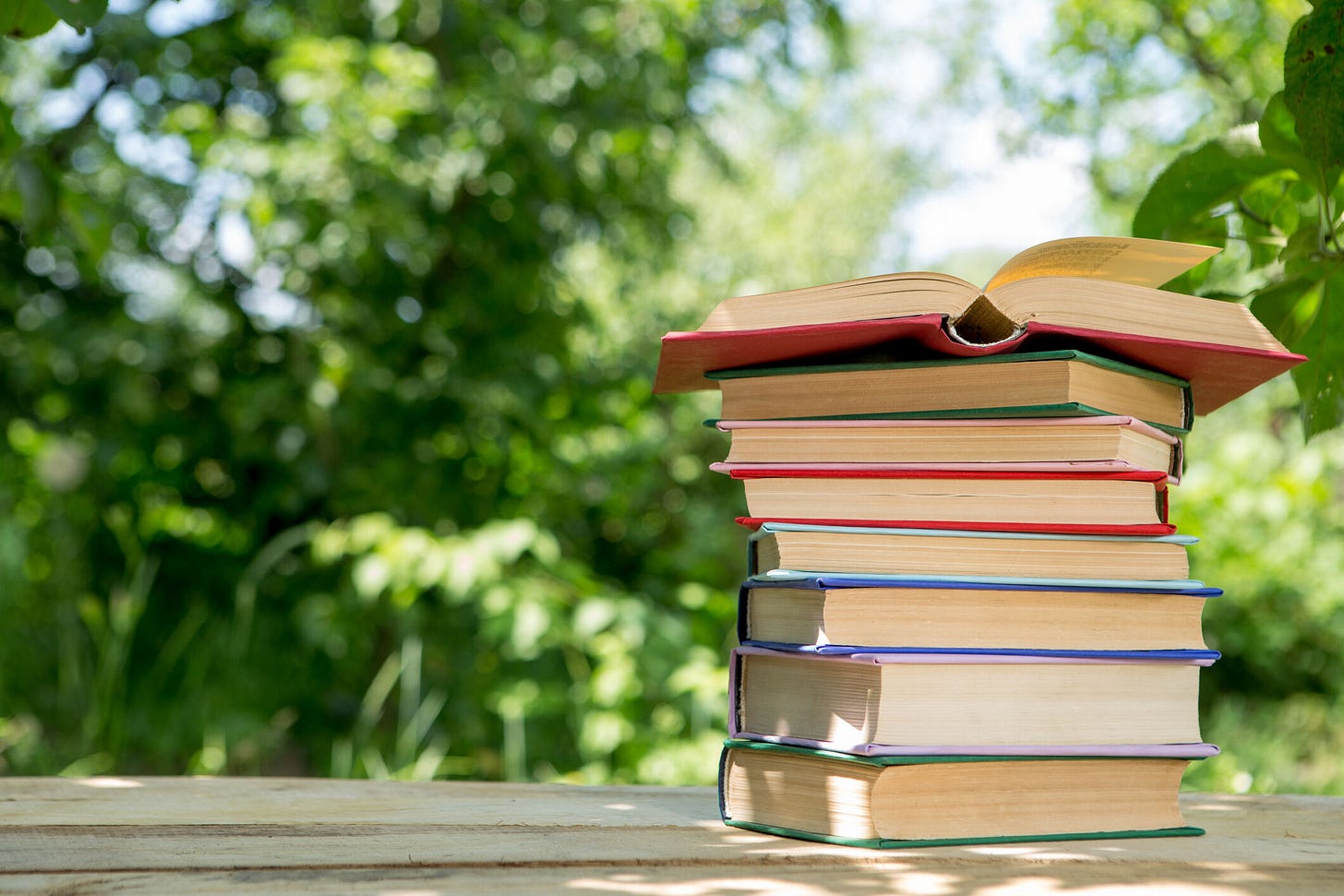
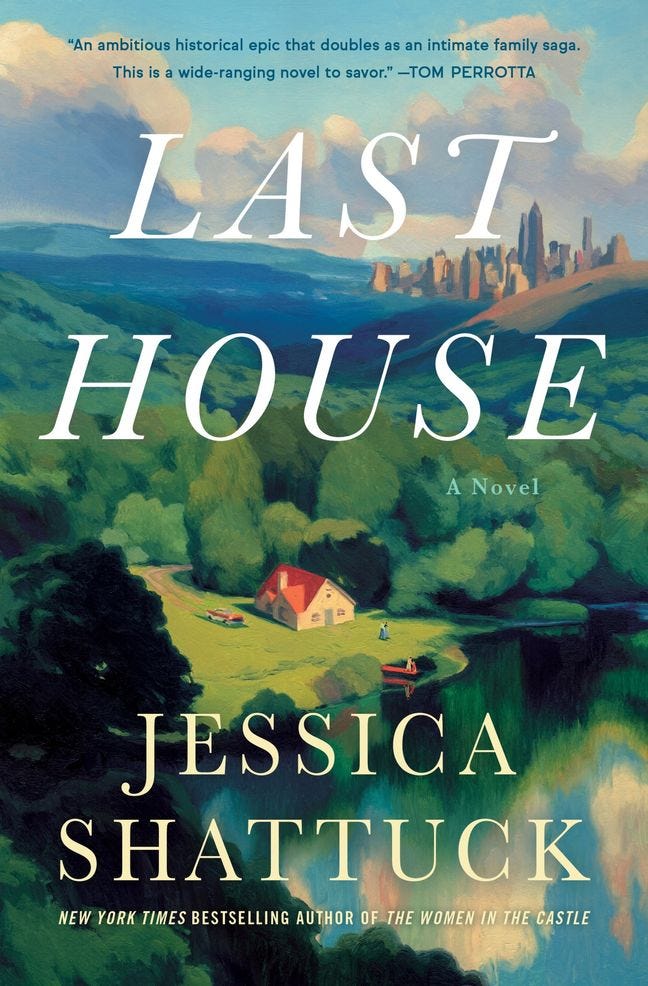



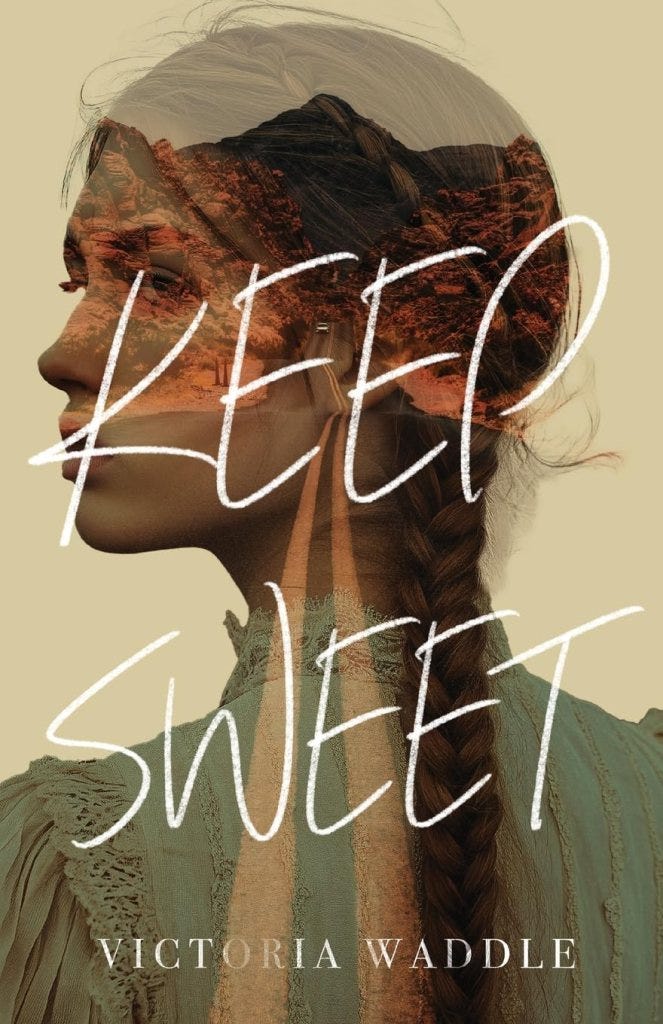
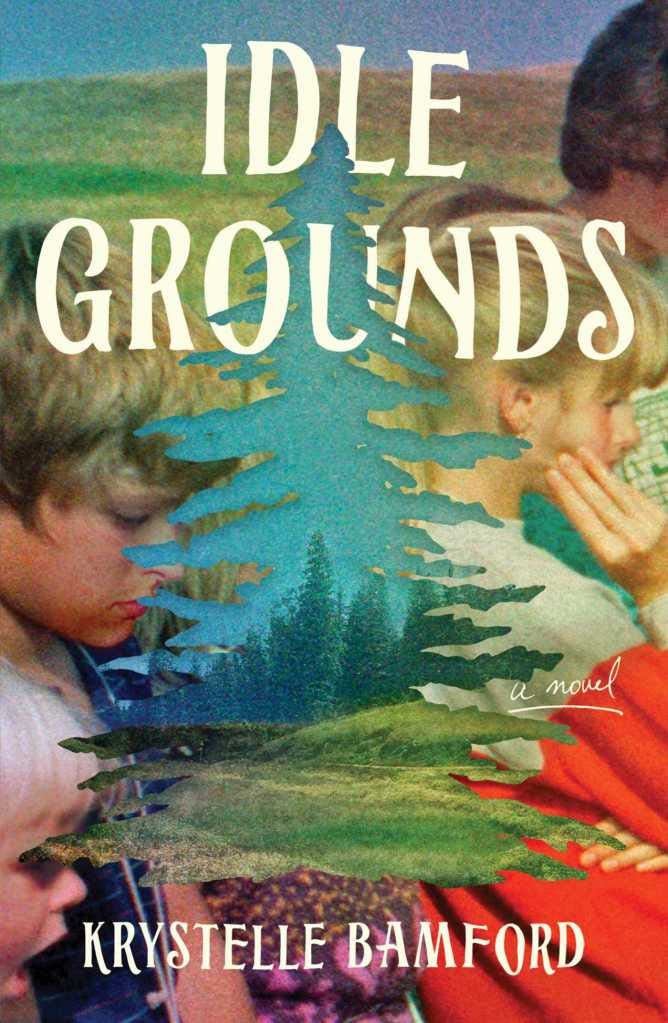

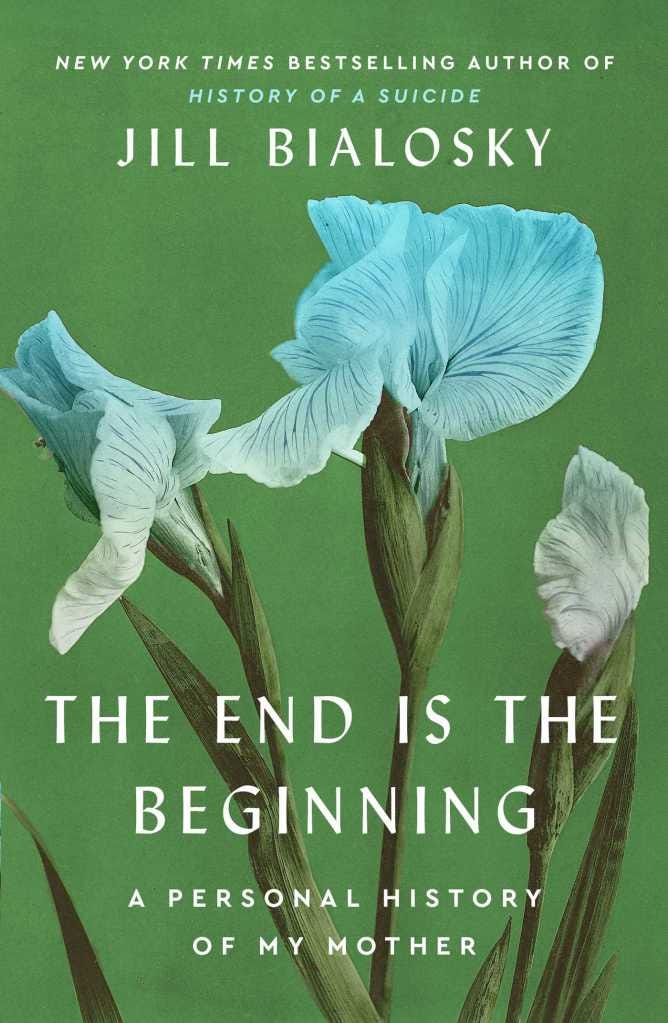
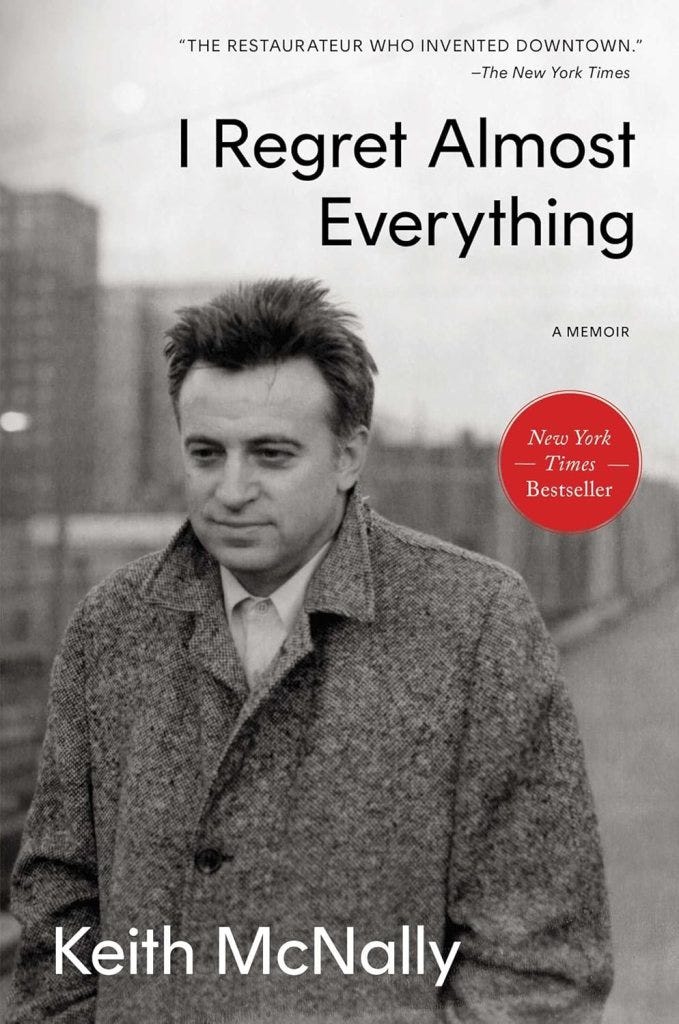
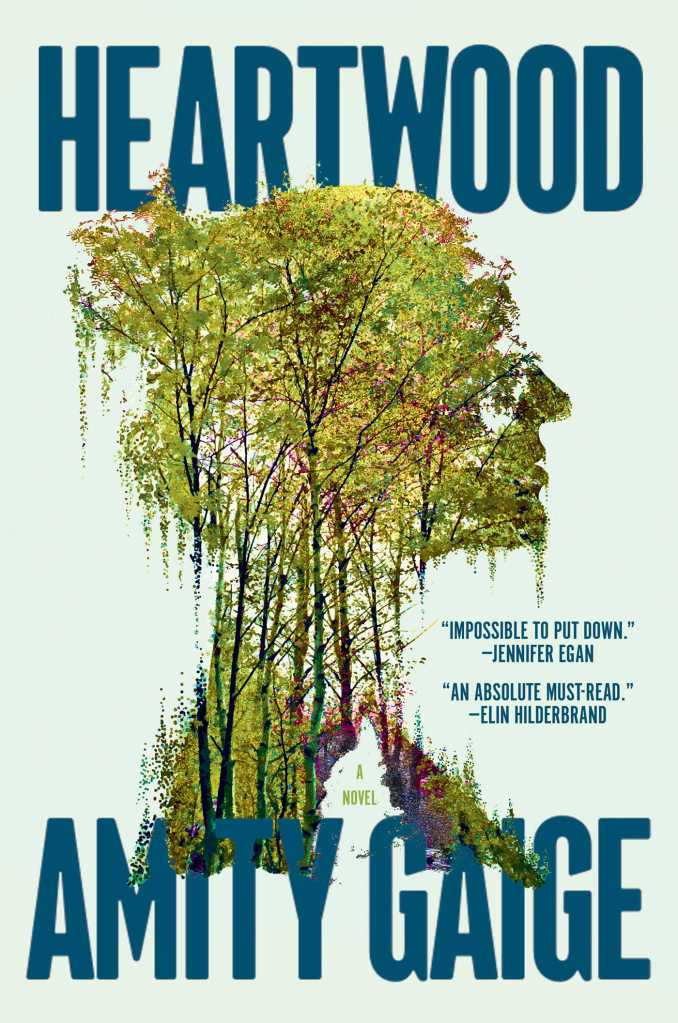
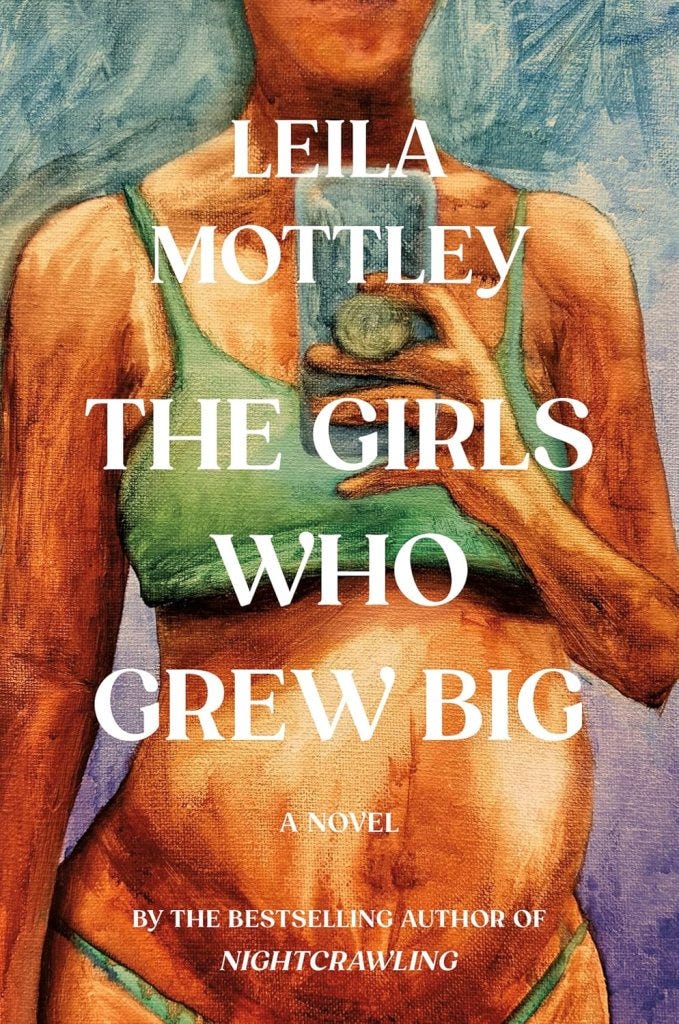

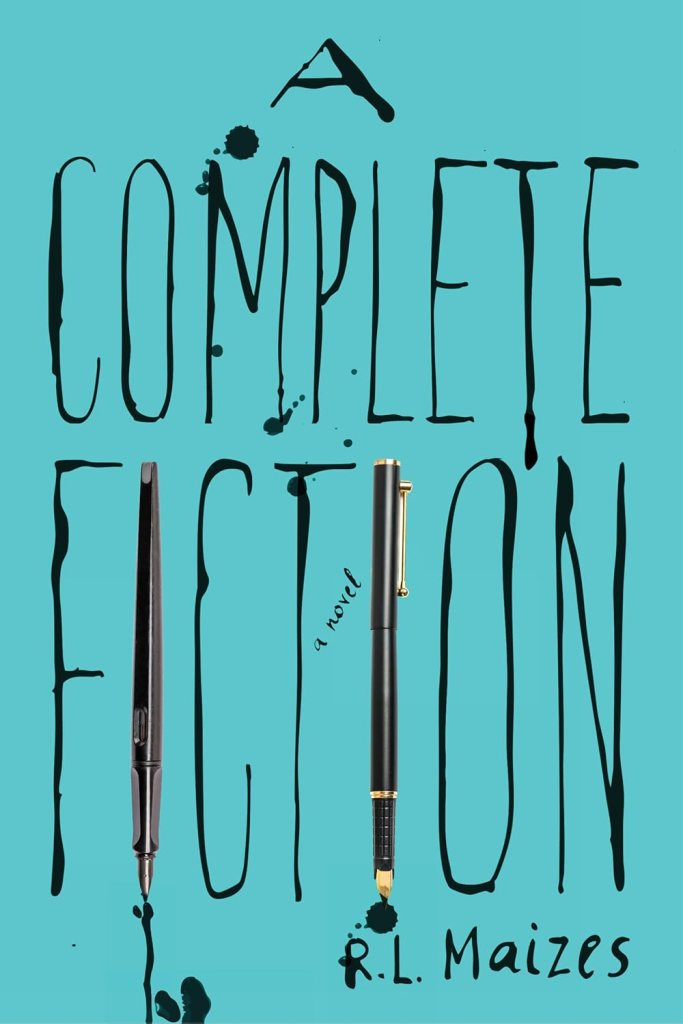
What a treasure chest—thank you, Bill (and thank you to the contributors to this list)!
This is such a fun idea! What a great list.